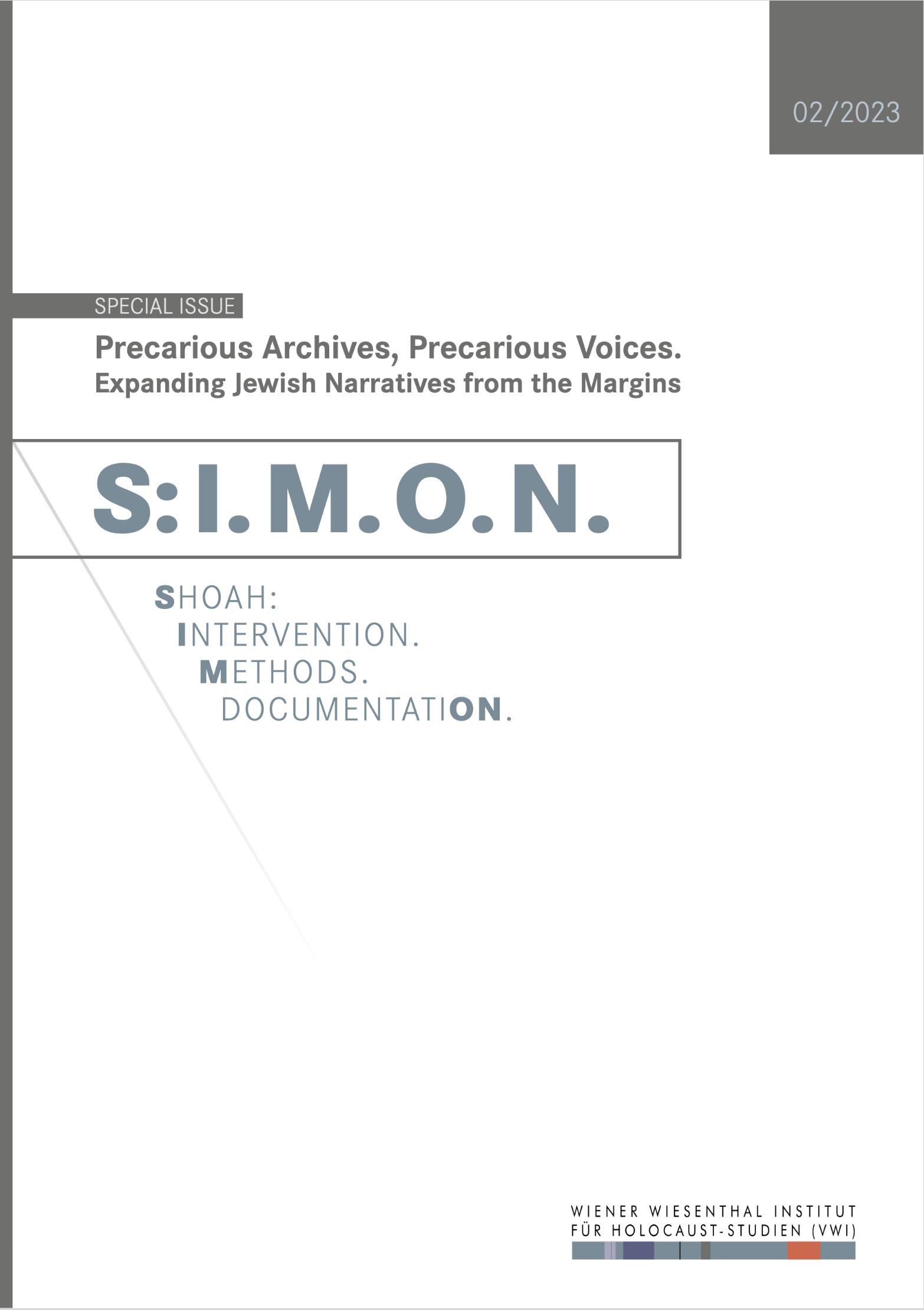Excavating Voices and Silences. The Early Testimonies of Hungarian Survivors through a Cross-Archival Approach
Excavating Voices and Silences. The Early Testimonies of Hungarian Survivors through a Cross-Archival Approach
Author(s): Ildikó Barna, Alexandra M. SzabóSubject(s): History, Jewish studies, WW II and following years (1940 - 1949), Fascism, Nazism and WW II, History of Antisemitism
Published by: Wiener Wiesenthal Institut für Holocaust-Studien
Keywords: early testimonies; cross-archival analysis; DEGOB; Arolsen Archive; social death; Hungarian survivors;
Summary/Abstract: The National Relief Committee for Deportees (Deportáltakat Gondozó Országos Bizottság, DEG OB), in addition to its extensive aid activities, had two other important tasks: to send expeditions to previous concentration and displaced persons camps in order to bring back survivors to Hungary, and to document all of the obtained information. An important step in the collection of information was the recording of the personal experiences of the deportees. The employees of DEGOB recorded survivor testimonies in the form of protocols based on the interviews that they had conducted with survivors. The unique collection of DEGOB protocols contains more than 3,600 such recollections. This article introduces and contextualises these DEGOB testimonies and then presents a cross-examination of a selection of them with documents created several years later by the International Refugee Organisation. These documents are kept in the International Tracing Service, today known as the Arolsen Archives. Our article represents the first step in a larger research project, in which we have found that the cross-examination of various archives not only yield further information about the life story of a survivor, but also points to important inconsistencies. In our case study, we have found “silences” and gaps that are of significant historical value and which provide greater insight into the societal structures that survivors navigated in the immediate post-war period. In order to uncover these instances, we utilise the concept of “social death” as a theoretical framework.
Journal: S:I.M.O.N. Shoah: Intervention. Methods. Documentation.
- Issue Year: 10/2023
- Issue No: 2
- Page Range: 73-90
- Page Count: 18
- Language: English

